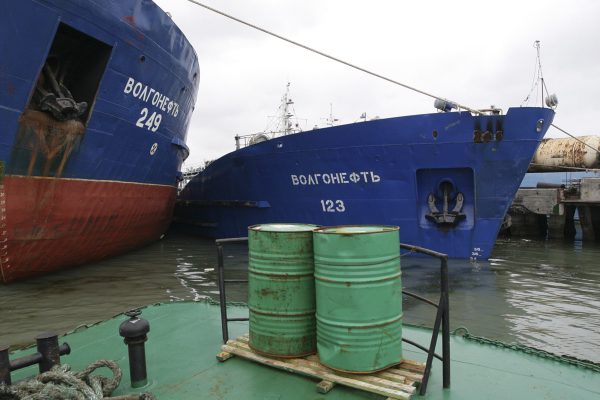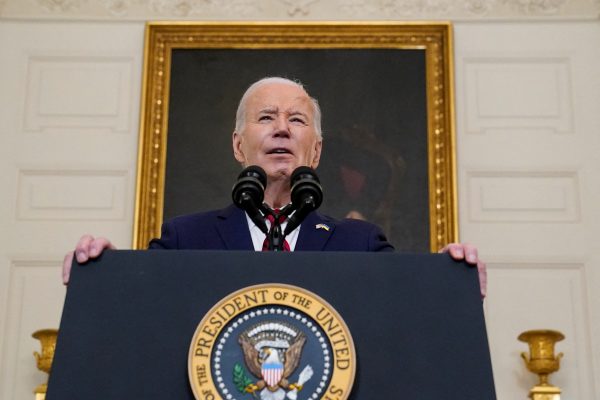The possibility of reintroducing the draft was a polarizing issue for many years in Latvia, but Russia’s invasion of Ukraine gave politicians the opportunity to bring it back to help reinforce national defenses. A fresh poll shows an increasing number of people in the Baltic state back the move.
The turnaround has been notable, from a unanimous vote in Latvia’s parliament to abolish conscription in 2006 to lengthy debates and two-thirds of members of parliament supporting its reintroduction in April 2023. Representatives of only one political party, For Stability!, voted against the move, while another, Latvia First, did not take part in the vote.
The new State Defense Service requires male citizens aged between 18 and 27 to serve, in military or civilian roles, and allows women to volunteer. The military option includes three strands: 11 months of “ordinary” service, five years in the National Guard, or special military training for students, which also lasts five years. The civilian option is 11 months working in a Latvian defense sector institution with issues related to real estate, logistics, procurement, geospatial information, or in museums.
In June, the SKDS research center conducted face-to-face interviews with 1,002 people as part of a project by academics from Latvia, Lithuania, and Taiwan on the willingness to defend one’s own country. The nationally representative sample showed 61% of Latvians supported the return of conscription, while 29% were opposed.
The survey showed a marked growth in support since a year earlier, when a poll with an identical question and methodology found 45% of respondents in favor, and 42% against. A similar trend was identified in polls commissioned by the Latvian Ministry of Defense, the latest of which showed 55% approval for conscription in December 2022.
The June 2023 survey revealed some notable differences among demographic groups. The most supportive of the draft were Latvian speakers, respondents over 45 — who are old enough to remember the Soviet Union — and those living in the Zemgale and Vidzeme regions. Rural respondents, and those working in the public sector were also strong supporters. Among all these groups support was between approximately 65% and 70%.
The least supportive were in the eastern region of Latgale, bordering Russia and Belarus, where 44% backed the move, and Russian speakers, of whom 48% were in favor.
Perhaps unsurprisingly, younger Latvians — the male part of which is most likely to be called up — tended to be less supportive. The survey found 42% of pupils and students backed the return to conscription, and that 50% of respondents aged between 18 and 24 years supported it. Pupils, students, and residents of Latgale were the only groups in which opponents outnumbered supporters.
Compared to the 2022 poll, support for the State Defense Service has grown in almost all demographic groups. Support amongst Russian speakers increased by 10%, while among Latvian speakers, the number of supporters grew by 20%.
A key issue in the debates which led to the return of conscription was the role of women, and whether they should be drafted alongside men. The 2023 poll showed there was limited support for this in Latvian society, with only 18% in favor and 73% opposed. There were no fundamental differences between demographic groups on this issue, even between male and female respondents.
The first 254 members of the State Defense Service, who started in July, were all volunteers after 488, including 11 women, applied to join. Some candidates were rejected on health or other grounds, while others decided to apply directly to the regular armed forces.
The next batch of conscripts will start their service in January — with volunteers joining first before the remaining places are filled through random conscription.
The state has sought ways to incentivize volunteering to smooth the process. Those who volunteer receive a higher monthly allowance of €600 ($660) a month, compared to €300 for those who are conscripted. Everyone who serves also receives €1,100 at the end of their term, regardless of how they joined.
Growing popularity for national service and financial inducements means Latvia’s conscription debate seems to have been settled for now. But the Latvian defense sector must be wary of scandals that might shatter the image of the State Defense Service. Serious injuries or even deaths of conscripts might well alter public opinion instantly.
Māris Andžāns is Director of the Center for Geopolitical Studies Riga and an associate professor at Rīga Stradiņš University.
Europe’s Edge is CEPA’s online journal covering critical topics on the foreign policy docket across Europe and North America. All opinions are those of the author and do not necessarily represent the position or views of the institutions they represent or the Center for European Policy Analysis.





